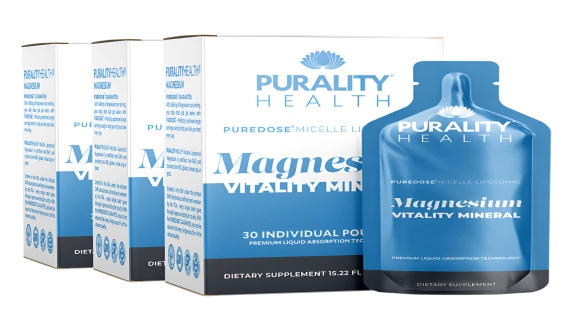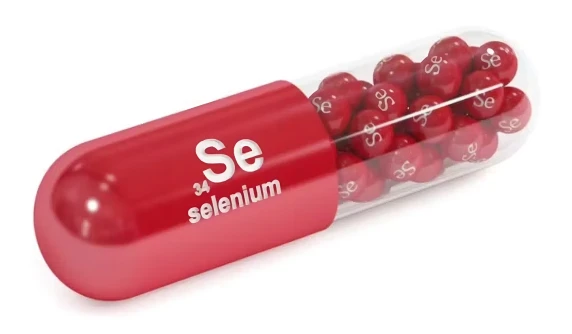
According to Johns Hopkins, if your liver had a to-do list, it would have over 500 items on it. No, that isn't a mistype. That organ, weighing around three pounds and fashioned like a cone, is one of the hardest functioning sections of your body.
And since it depends mostly on your food, one of its most crucial roles is also the reason it can have issues.
According to Johns Hopkins, the liver aids in maintaining the elimination of toxins and other potentially dangerous compounds from your body.
It accomplishes this by either completely eliminating harmful toxins from the bloodstream or converting them into something safe. This means that in order to maintain good bodily function, your liver is continuously consuming lipids, medications, bacteria, and ammonia.
But everything has its boundaries, and your liver is no different. Some foods, especially when consumed in excess, can put too much strain on this important organ.
Furthermore, pushing your liver past a certain limit prevents it from functioning normally, just as you are less likely to finish everything on your to-do list while you're feeling under the weather.
Thankfully, there's some positive news. There are foods that promote the health of your liver in addition to those that can be hard on it. Naturally, this does not imply bingeing on any one item, but when consumed in moderation and under the guidance of a medical professional, certain foods may be exactly what your liver needs to be robust and health y.
7 foods to eat to maintain a healthy liver
1. Prickly pears
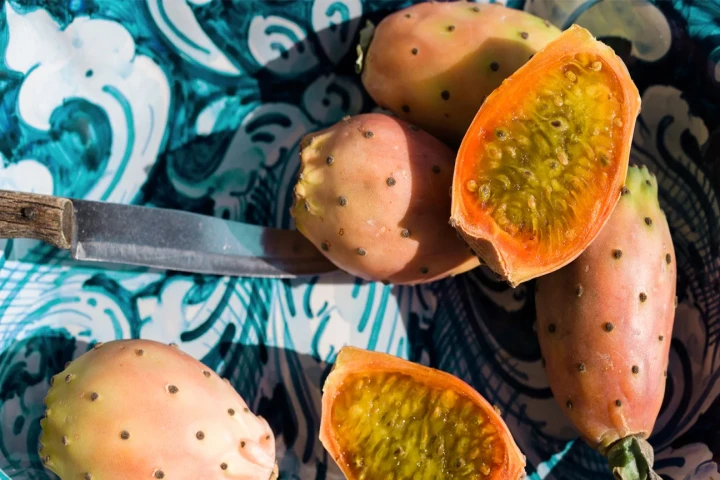
Prickly pears are actually a kind of edible cactus, as opposed to the pears you would typically use in a poached pears recipe.
It should come as no surprise (just take a look at those needles), but you might be surprised to learn that they are a common treatment for a number of conditions, such as fatigue, cuts, ulcers, and yes, liver disease.
Prickly pears have been shown in multiple studies to be a solid option for a diet that is favorable to the liver, as Healthline notes. According to Healthline and the National Library of Medicine, in one study, the researchers discovered that when rats drank alcohol and then prickly pear juice, the juice helped lessen the damage the alcohol caused to the rats' livers.
A mixture of insecticide and prickly pear extract was administered to mice in a different study (source: Healthline and National Library of Medicine). Why? The goal was to determine whether the extract may mitigate the harmful effects of this specific kind of herbicide on the liver. Thankfully, it did for the mice.
All right, so what about people and prickly pears? Well, prickly pear extract was proven to help reduce hangovers in a trial involving fifty-five human participants, according to Health line and the National Library of Medicine.
However, include prickly pears in whatever form in your diet does not mean that you should overindulge in alcoholic beverages. Additionally, you should always consult your health care provider before making dietary changes, particularly if you have a condition like liver disease.
2. Coffee
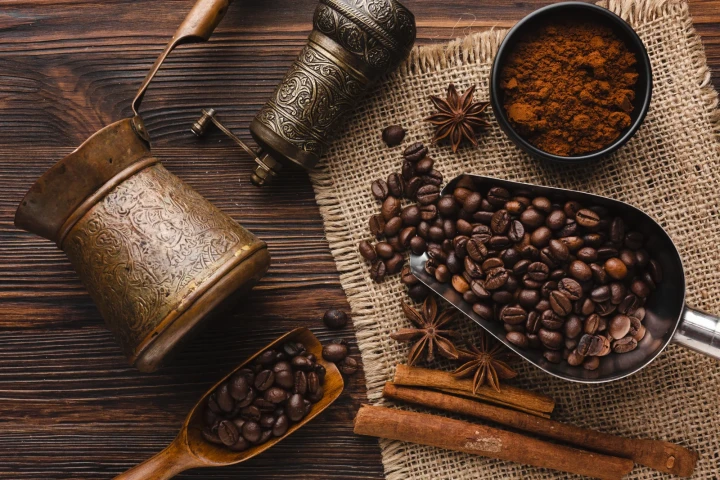
For numerous individuals, the day commences with their initial cup of coffee. Even while consuming excessive amounts of this well-known beverage may be harmful to your health, the University of Chicago Medicine recommends on its website that you should drink up to three cups of coffee per day, particularly if you have liver fatty disease. Indeed, you read correctly: three cups of coffee each day.
According to the paper, authored by registered dietitian Annie Guinane, around 100 million Americans suffer from fatty liver disease. More specifically, excessive fat buildup in the liver results in non-alcoholic fatty liver disease.
According to the University of Chicago and Mayo Clinic, this can worsen into cancer and cirrhosis, a condition in which the liver gets damaged.
Even though Guinane suggests making additional dietary modifications to help reverse the consequences of fatty liver disease before they have a chance to worsen, coffee is still a crucial component of her suggested liver- health y lifestyle.
In particular, coffee consumption may maintain the liver 's elasticity, which is something the organ loses as it becomes fat-saturated (via University of Chicago).
Although the exact cause of this effect is still being investigated, Guinane does advise consuming drip-filtered black coffee as opposed to frappes, lattes, and macchiatos. Additionally, she claims that while adding sugar to coffee is not the ideal option, adding cinnamon or nutmeg is.
3. Sunflower seeds

No, NAFLD is not a recently popular text. Actually, it stands for non-alcoholic fatty liver disease, which is caused by an excess of fat building up in the liver, according to Healthline.
Liver failure may eventually result from nonalcoholic fatty liver disease (NAFLD), thus it's critical to practice a health y lifestyle that includes eating foods that support the liver. Fortunately, NAFLD may be mitigated by including sunflowers in moderation in your meals and snacks.
The fact that sunflower seeds are so high in vitamin E may be the key to their possible benefits for your liver. In actuality, a 100-gram serving of sunflower seeds contains about 20 milligrams of vitamin E, according to the FDA and Health line.
Before you dash to the grocery store or visit your preferred online grocery store, there is a small print you should be aware of.
Although studies on vitamin E's effects on livers, particularly those with nonalcoholic fatty liver disease (NAFLD), they concentrated on vitamin E supplementation (via Health line).
Furthermore, eating too many sunflower seeds does have disadvantages, as Healthline points out. Sunflower seeds, for instance, can raise your calorie consumption. Not keeping a healthy weight can result in a number of health issues, including non-alcoholic fatty liver disease (NAFLD).
They also contain a lot of selenium, which has certain advantages but can also have negative effects in excess. In summary, limit the amount of sunflower seeds you eat each day if you wish to include them in your diet.
4. Oatmeal
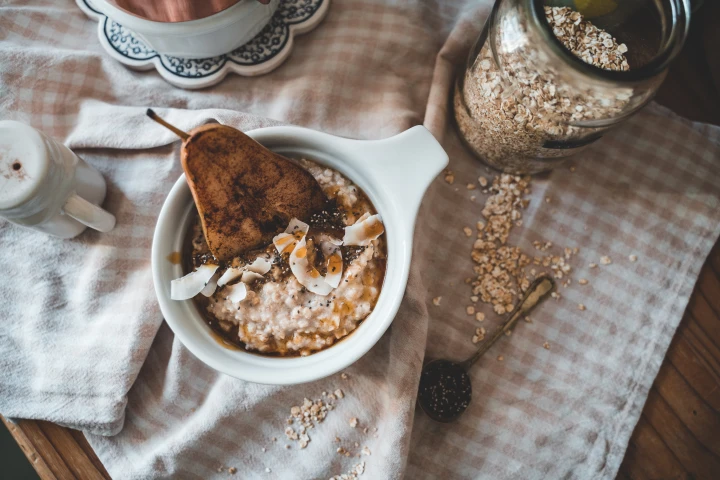
We've all heard by now about the health benefits of fiber. But the type of fiber you choose matters, particularly if you're attempting to maintain the health of your liver. The good news is that oatmeal contains a lot of fiber, which has been linked to liver benefits.
According to Medical News Today, oatmeal, and oats in general, are high in beta-glucans, a substance that may prevent your liver from becoming fat-saturated.
To be honest, mice were used in this study rather than humans, but the results are nonetheless encouraging. Indeed, according to the National Center for Biotechnology Information, beta-glucans may help people regulate their blood sugar levels and maintain a healthy weight—two things that can be hard on the liver.
In addition to having beta-glucans, oats are whole grains, which help promote healthy digestion and prolong feelings of fullness (Medical News Today and the British Journal of Nutrition).
It's crucial to remember that, despite its convenience, instant oatmeal isn't necessarily as healthful as whole or steel-cut oats. In particular, be aware of added sugars, which can be particularly hazardous for your liver's overall health (via American Liver Foundation).
Consider carefully what you put in your oatmeal as well. The incorrect garnishes can transform a nutritious dinner into something that could be harmful to your liver .
5. Garlic
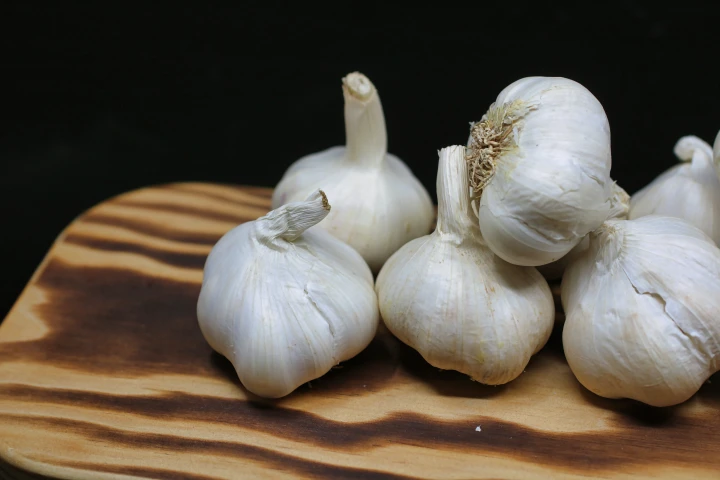
No, garlic is not going to be on Dracula's list of nutritious ingredients—despite the fact that the vampires seemed to tolerate it. But if you're worried about your liver, you should add this strong herb to your short list.
As you can see, your liver produces the enzymes necessary to eliminate toxins from your bloodstream, assisting in keeping your body clear of potentially hazardous substances (Livestrong and Fisher-Titus Medical Center).
By coincidence, garlic also increases the activity of those enzymes, which may help your liver eliminate more toxins from your blood. That's not all, though.
As per the Fisher-Titus Medical Center, selenium, a mineral that helps prevent toxins from overwhelming your liver, is present in garlic and is considered health y.
It makes sense that your liver needs to occasionally detox in order to maintain normal function, given that one of its primary functions is to deal with these dangerous drugs.
Garlic is a very useful herb, but there are still certain things to be cautious of. Recall that garlic has selenium, and as with many other nutrients, excess selenium can cause health problems.
Therefore, you should consult a healthcare provider to determine the appropriate amount of garlic to include in your diet. In fact, they might even suggest avoiding garlic altogether, or at the very least, taking supplements (via Livestrong). Why? One explanation, according to Harvard, is that some drugs, such as blood thinners, may interact with garlic.
6. Broccoli
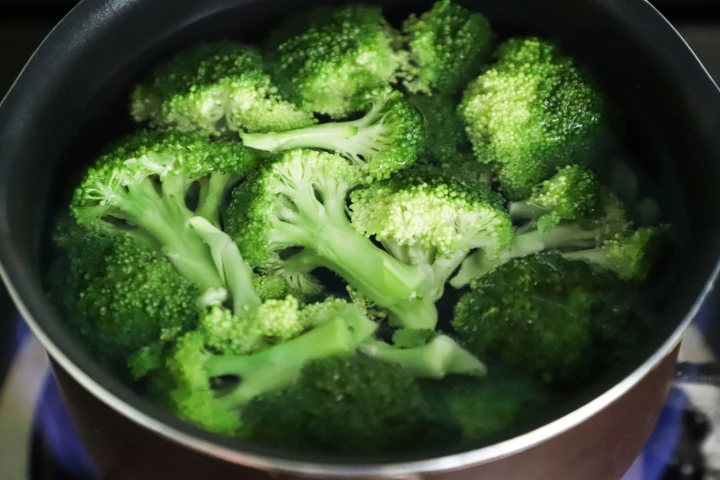
Alas for broccoli. The Pixar film "Inside Out" uses this vegetable—albeit not in every version—as a story point because it is rejected so frequently. If broccoli isn't your favorite vegetable, you should still give it a try.
Eating broccoli may benefit someone with liver cancer as well as non-alcoholic fatty liver disorders, or NAFLD, according to a study published in the Journal of Nutrition (via Medical News Today).
The purpose of the study, which included four groups of mice given varying diets, was to determine whether broccoli had a greater effect on liver cancer than on other types of cancer.
The number of cancer nodules (growths) in the livers of the mice given the Western diet, which is high in fat and sugar, decreased when they started eating broccoli (although the size of the remaining nodules did not alter).
Why, then, did broccoli affect the mice's livers in this way? According to Prof. Elizabeth Jeffery of the University of Illinois, who oversaw the study, she and her colleagues had previously investigated the health advantages of broccoli and discovered that it contains a substance that may help stop cancer from growing in your body (via Medical News Today).
Furthermore, studies have shown that brassica vegetables, such as broccoli, may help lower the risk of nonalcoholic fatty liver disease (NAFLD) by preventing the accumulation of excess fat in the liver .
7. Almonds
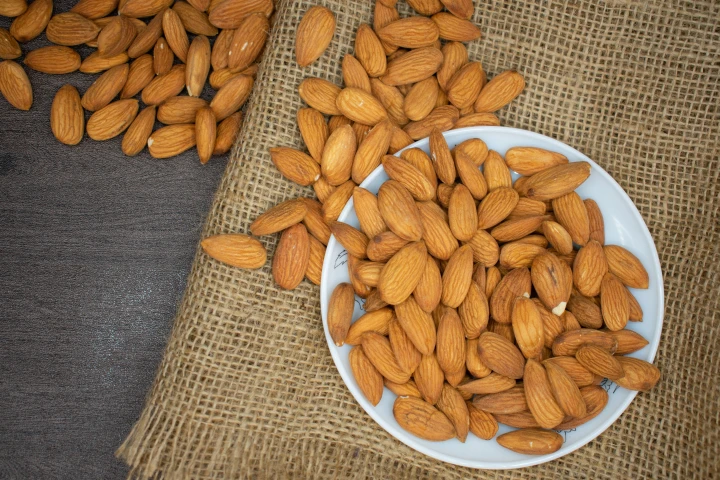
These crunchy small nuts can be quite health y for your general health in addition to being fantastic for a range of foods, including desserts. And your liver is unquestionably included in it.
Almonds can aid your liver in regulating blood pressure and cholesterol, among other things, as well as prevent it from being too saturated with fat, according to the Manipal Hospitals website.
The reason almonds are so beneficial to your liver is that they are a great source of vitamin E and unsaturated fats. Recall that not all fats are created equal, and that unsaturated fats can benefit your heart and liver in particular (via Harvard). Almonds are also beneficial to your teeth and bones because they contain calcium (source: WebMD).
Before you begin gorging on almonds, there is one thing to be aware of.
While almonds can be a beneficial addition to a diet, consuming excessive amounts of them may make it harder to maintain a health y weight, which may be taxing on the liver (source: WebMD). A dozen almonds, for instance, contain 180 calories.
Therefore, it's crucial to watch your portion sizes, particularly if you intend to eat them as a snack. You should not, in my opinion, binge-eat this food while watching TV from a big bag or snack container.
7 foods you should avoid to keep your liver healthy
1. Baked goods

Sweet delights like cookies and donuts are the ultimate comfort foods for a lot of us. A cup of tea and a piece of bread drenched in jam can be enough to cheer someone up on a difficult day. Sadly, though, these delicious delicacies do not belong in a diet that is good for the liver .
Foods high in trans fats might make it more difficult to maintain a healthy weight, which can strain your liver, as explained by WebMD. For those who are unfamiliar with the term, trans fats are created when oil solidifies instead of liquids (source: MedlinePlus).
Furthermore, use caution as "partially hydrogenated" is only a code word for a food item that contains trans fats. There's still more terrible news, though.
Shortening and margarine, which are frequently employed in baked products, are well-known examples of trans fats. This means that even if you're baking a cake from scratch, you can be utilizing substances that damage your liver .
Trans fats are also present in biscuits, sweet rolls, pies (particularly the crust), and crackers, in addition to the obvious offenders in baked goods, such as cookies, donuts, breads, and cakes (source: MedlinePlus).
Trans fats can even be present in cake mixes, and that's before you add any additional ingredients like margarine. Furthermore, it's crucial to remember that salt and sugar, which are similarly harmful to the liver, are frequently included in baked products (American Liver Foundation).
2. White rice
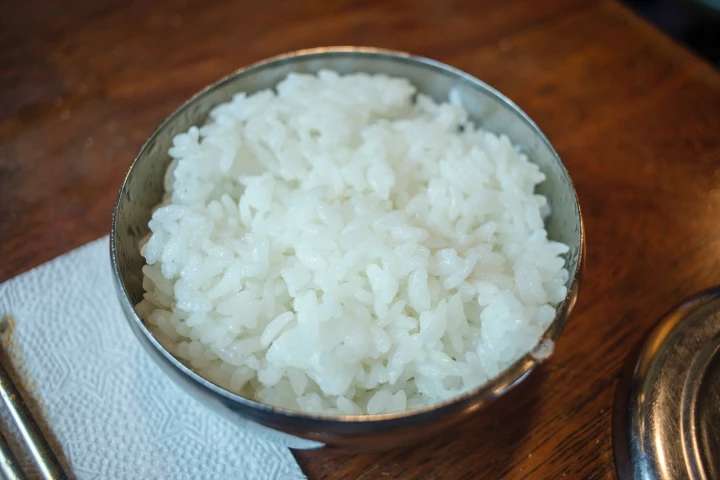
One of the most popular culinary staples is white rice, which is even the subject of a popular Tiktok movie. However, you might want to switch to a different grain for your next meal if you're concerned about your liver.
White rice is a form of refined carbohydrate, as Dr. Mark Babyatsky, the chairman of the Samuel L. Bronfman Department of Medicine at Mount Sinai School of Medicine in New York, said to Everyday Health. And reconsider if you believe that all carbohydrates are created equal.
Refined carbohydrates, like white rice, are more likely to cause a fatty liver than their cousins, complex carbohydrates, as explained by Dr. Babyatsky in Everyday Health .
The peculiar turn of events in this tale is that the source of both kinds of carbohydrates is the same. The key distinction is in the way they're handled.
A grain like rice loses its germ and bran when it is processed, according to registered dietitian Tara Gidus Collingwood (via U.S. News & World Report). "This implies that a large number of B vitamins, fiber, protein, minerals, and good fats are eliminated."
White rice lacks important nutrients and is digested more quickly by our bodies than complex carbohydrates, which have not had their bran and germ removed (source: U.S. News & World Report).
This may cause your blood sugar levels to rise quickly and make it harder for you to maintain a health y weight, both of which over time may put strain on your liver.
3. Fried foods
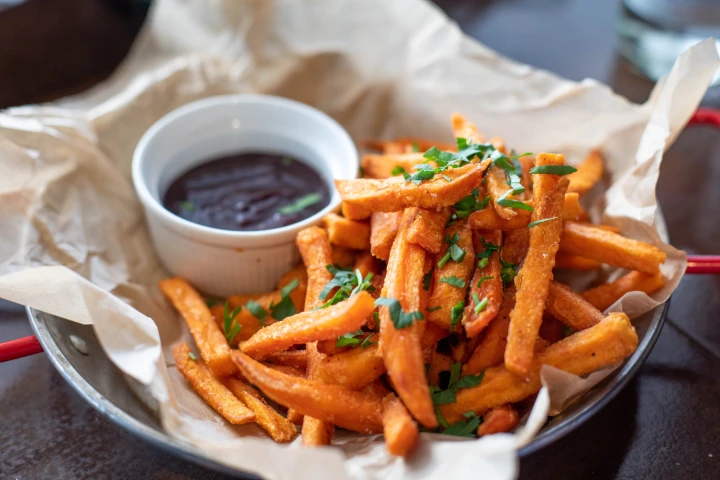
Alright, let's face it, most people don't consider fried food to be health y. Their popularity is unabated, of course, but the reality is that they are not classified in the same league as grilled, broiled, or even baked cuisines.
But the effects of these fried foods might be felt sooner rather than later, and they are not only perhaps harmful to the health of your liver.
In an interview with CBS News, Dr. Drew Ordon of "The Doctors" discussed a study that revealed fried foods, which are frequently seen in fast food restaurants, can harm the liver and can produce "significant changes" in it in as little as one month. To be fair, consuming a lot of these items was the main emphasis of the study.
Nonetheless, as Dr. Ordon observes, "so many people are getting into eating fast food as their staple, especially kids." And who, in this study's estimation, are some of the main offenders? Sadly, staples like onion rings, fried chicken, and french fries (which were included as one of the worst fried meals for your liver ) were featured in the list.
Alright, but how harmful could fried meals actually be? Dr. Ordon claims that the liver's enzymes are impacted in a manner similar to that of a hepatitis patient after eating a lot of fried food (via CBS News). Remember that all types of hepatitis can harm or even induce liver failure in certain situations. (via Mayo Clinic).
4. Alcohol
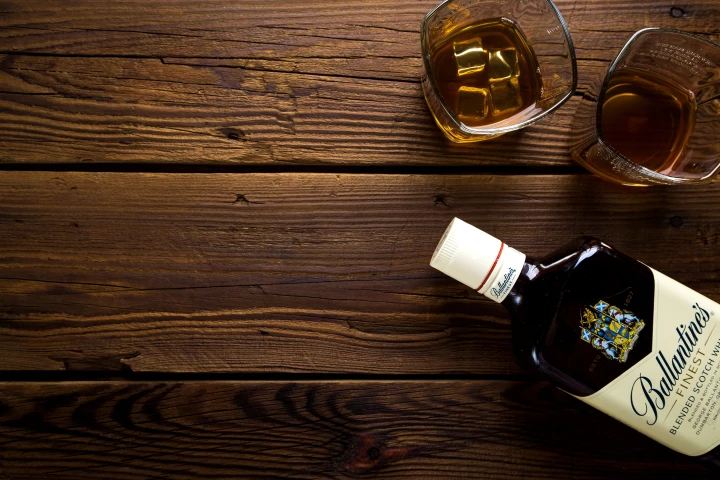
The rationale for the liver damage caused by alcohol may not always be readily apparent, even though it is a well-known fact. As you can see, among the many things your liver does is convert alcohol into carbon dioxide and water (Cleveland Clinic).
Your body will be able to flush out the alcohol this way, preventing any serious damage from occurring. Regretfully, there are boundaries to your liver 's capacity, and this is where issues may arise.
According to Cleveland Clinic, if you drink too much alcohol, your liver will naturally attempt to process it normally but may become overworked and allow the alcohol to stay in your bloodstream as a dangerous substance.
After this, alcohol can damage your entire body, including your liver. More specifically, alcohol may hinder your liver's ability to break down lipids. Consequently, you run the risk of developing fatty liver, which can progress to cirrhosis, a disorder in which the liver scars (via Cleveland Clinic and Mayo Clinic).
All of this is worrying, but the most frightening thing is that drinking more than 1.5 ounces of alcohol a day might result in fatty liver (source: Cleveland Clinic).
Furthermore, although fatty liver disease can be recovered from, a scarred liver will continue to be harmed and may eventually quit working. Furthermore, drinking too much can harm your heart and other parts of your body.
5. Red meat
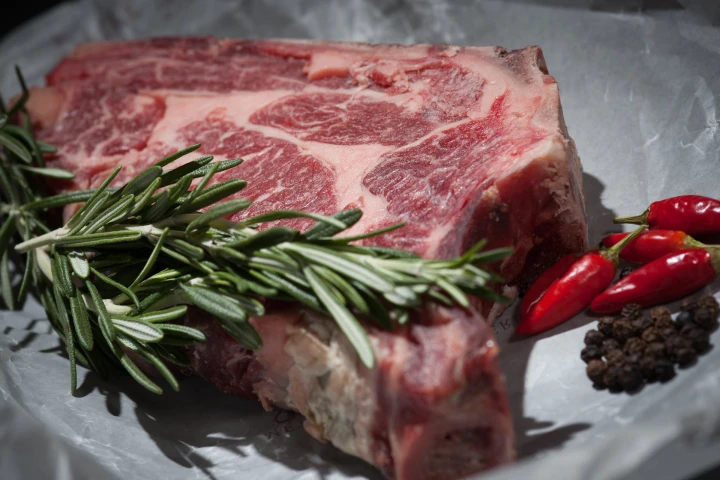
The heart and circulatory system are typically highlighted when we learn about potential health risks linked to red meat. On the other hand, consuming significant quantities of red meat on a regular basis has been found to increase the risk of non-alcoholic fatty liver disease (NAFLD) by almost 50%, according to a study published in the Journal of Hepatology (via Chicago Tribune).
Recall that NAFLD is the result of excessive fat accumulation in the liver , which, if left untreated, can eventually cause irreversible damage.
Furthermore, an 800-person research conducted by the US National Institute of Diabetes and Digestive and Kidney Diseases discovered that this is not the only liver issue (via Chicago Tribune).
Red meat consumption may also increase your risk of developing insulin resistance, a condition in which your body becomes less efficient at using the insulin it produces.
This was highlighted by the study's researchers. This illness can raise the risk of both Type 2 diabetes and non-alcoholic fatty liver disease (NAFLD).
To be fair, the researchers have stated that their results about the possible effects of a red meat diet on the liver "didn't prove cause-and-effect" (via Chicago Tribune).
More investigation is required before that can happen. Having said that, you may want to limit your intake of red meat if you have liver issues.
One additional thing to keep in mind: the study also discovered that processed meats caused the same amount of liver damage to the subjects, so you may want to cut out items like bacon from your diet.
6. Foods high in salt
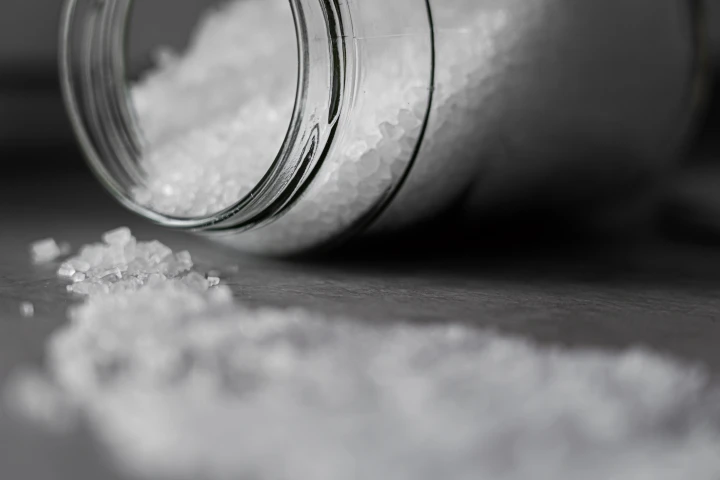
Undoubtedly, the human body need a specific quantity of sodium to function; nevertheless, what is the recommended daily intake of salt for an adult to maintain good health? The American Chemical Society (ACS) and the US government both say that the answer is a meager teaspoon.
Although it's unlikely that anyone would desire to ingest a whole teaspoon of salt, you might be shocked to see how much salt you actually consume on a daily basis if you start reading nutrition labels. Indeed, a small amount of salt used sometimes may eventually cause liver issues in both adults and fetuses.
According to an ACS-published study in the Journal of Agricultural and Food Chemistry, fully grown mice that ingested high sodium diets developed cellular problems in their liver s.
To be more precise, they created less liver cells and the ones that they did develop had aberrant properties and perished faster. Moreover, when the researchers exposed the chick embryos to higher concentrations of salt, alterations to their liver cells transpired, perhaps increasing the likelihood of liver failure (via ACS and National Center for Biotechnology Information).
Although the study's findings are alarming, the researchers also found a potential means of mitigating the liver 's negative effects of elevated salt levels (via ACS). The mice's liver s recovered when vitamin C was given to the cells of the chick embryos.
7. Sugar
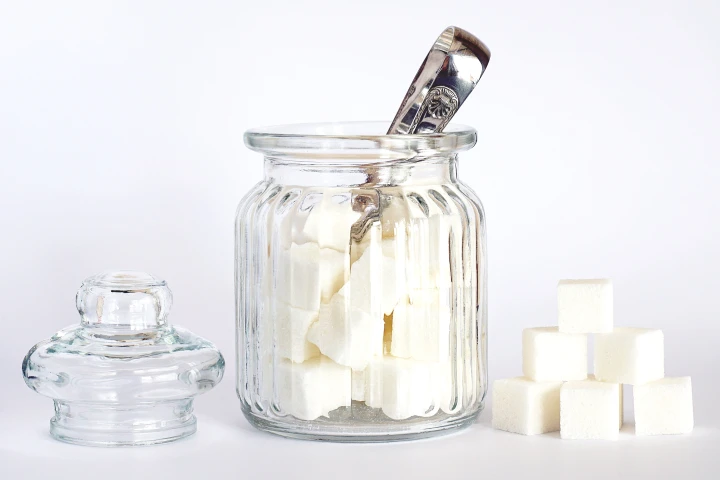
To be clear, added sugars are those that do not naturally occur in some foods. Medical News Today and Comprehensive Reviews in Food Science and Food Safety both describe them.
This brings us to the topic of added sugars in the following section. Rather, they are included into these foods as they are being manufactured. Sadly, it doesn't take much of this kind of sugar to have the potential to harm your liver .
Participants in a three-year study with ninety-four men were instructed to abstain from all sugar-sweetened beverages for four weeks prior to the start of the study (sources: Medical News Today and Journal of Hepatology).
The males were split up into four groups, with ages ranging from 18 to 30. One group kept drinking their sugar-free beverages, while the other three groups drank their drinks three times a day with either glucose (simple sugar found in cornstarch), fructose (sugar found in fruits and honey), or sucrose (table sugar) (via Medical News Today, Journal of Hepatology, and Healthline). Each of the three groups consumed 80 grams of sugar on a daily basis.
Despite the fact that three distinct groups of study participants drank beverages containing sugar, the fructose group created the most amount of fat (source: Medical News Today and Journal of Hepatology).
Furthermore, since fat can cause non-alcoholic fatty liver disease, it's critical to monitor not just the quantity of sugar you consume but also the type of sugar or sugars present in the foods and beverages you consume.
